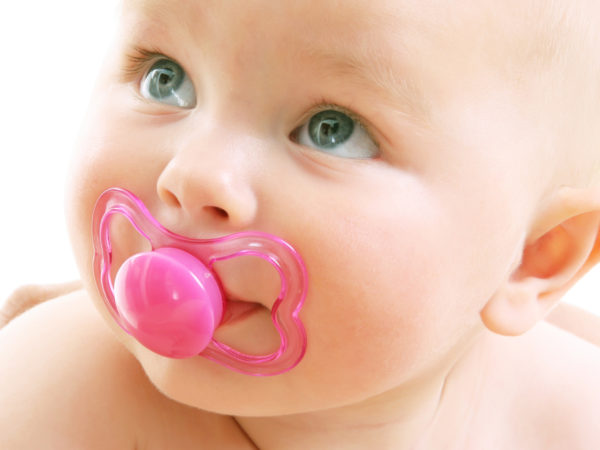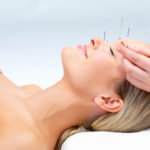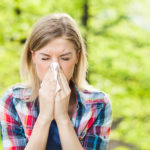Sucking Babies' Pacifiers for Allergy Prevention?
I just heard that parents are now supposed to suck babies’ pacifiers to clean them. This sounds really unhygienic to me. Wouldn’t the parents be passing on their germs?
Andrew Weil, M.D. | May 9, 2013

Strange as it may seem, the practice of sucking your baby’s pacifier to clean it – most commonly after it has dropped on the floor – may protect children from developing allergies and asthma later in life. This news comes from Swedish researchers who followed 184 babies for three years, examining them periodically for allergy symptoms. The parents were asked to keep records of when they introduced new foods into the babies’ diets, when the children were weaned, and other child-rearing practices.
The study showed that at 18-months of age, the children whose parents reported sucking pacifiers to clean them had one-third the risk of developing eczema than babies whose parents cleaned pacifiers some other way. (Infantile eczema is the most common early sign of allergy.) By the time the children turned three, eczema developed significantly less often among babies whose parents sucked on pacifiers to clean them during the infants’ first six months of life.
While the study didn’t prove that exposure to parental saliva was responsible for the lower rate of allergies, the findings conform to the “hygiene hypothesis,” which holds that children who grow up in less sanitary environments are less likely to develop allergies and asthma than youngsters raised in cleaner, more protected ones. The idea is that the developing immune systems of less privileged kids are exposed to more germs from an early age and become stronger as a result.
The Swedish study found that a majority of the parents whose babies used pacifiers said that they cleaned the pacifiers by rinsing them off with tap water or boiling them. But the parents of 65 of the children reported also “cleaning” pacifiers by putting them in their own mouths and briefly sucking. Not only were the children of these parents less likely to have eczema at 18 months than youngsters whose parents did not use their own mouths to clean the pacifiers, they were also 37 percent less likely to test positive for sensitivity to common allergens such as birch and timothy grass pollen, dander of cat, dog and horse; mold, dust mites, milk, egg, soy, fish, wheat, and peanut.
Babies in this study who had the lowest incidence of eczema at 18 months were those who were delivered vaginally and whose parents “cleaned” their pacifiers by sucking. The highest prevalence of eczema occurred among the babies delivered by Caesarean sections whose parents cleaned pacifiers by rinsing or boiling. A Canadian study published in February, 2013, found that babies born by C-section lack a specific group of bacteria found in babies born via vaginal delivery (even if breastfed). And babies who were formula-fed had a different bacterial makeup than babies who were exclusively or partially breastfed. We don’t know yet how – or if – these differences affect long-term health, but based on the Swedish findings, parents who suck their babies’ pacifiers clean may be on to something.
Andrew Weil, M.D.










